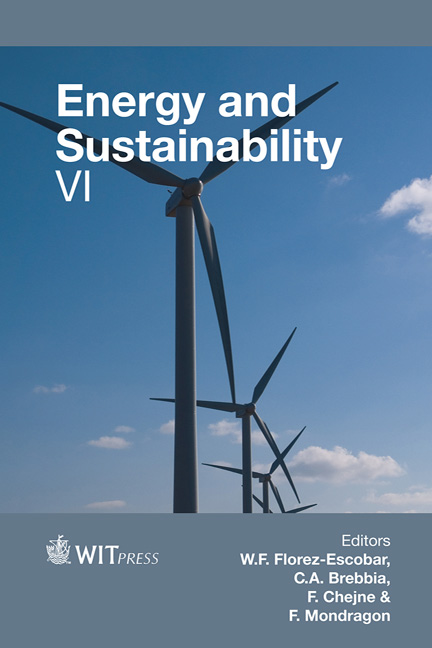First In Situ Measurement Of Soil Thermal Response In Guayaquil, Ecuador
Price
Free (open access)
Transaction
Volume
195
Pages
10
Page Range
327 - 336
Published
2015
Size
1,102 kb
Paper DOI
10.2495/ESUS150281
Copyright
WIT Press
Author(s)
G. Soriano, R. Villanueva, I. Gonzalez, K. Lopez, M. Cornejo
Abstract
The paper presents the results of the first experimental measurement of soil thermal properties in Guayaquil, Ecuador. The experimental point is located at UTM (0622853/09755713) and the test was carried out during the Ecuadorian dry season. This location is geologically composed of sediments of estuarine-deltaic nature from River Guayas. A boring of 113 mm diameter and 50 m deep was drilled to perform the test. The experiment consists of heating and water pumping during a period of between 48 and 72 hours. The power input to the system is 2746.03 W which heats a water flow of 1.36 m3/h, corresponding to a value of 54.92 W/m. A linear source model was used to obtain the thermal conductivity and diffusivity of the soil. In order to reduce errors in the calculations it is important to allow the system to reach steady state t > 20r2/α. In our case steady state was reached after the first 12 hours of measurement. Thermal conductivity of the soil was calculated to be 1.310–1.312 W/m K, thermal diffusivity between 0.017–0.046 m2/day. The core material of the drilling was recovered and used for a lithological, mineralogical and geotechnical analysis of the samples using X-ray diffraction, optical microscopy, grain size analysis. Silts containing 45.3% illitemotmorillonite and 32.1% anortite, 18.2% cuarzo and 4.4% amorphous minerals. Mineralogy in sand is cuarzo and plagioclasa anortite type. Finally, an assessment of the suitability of the soil for the use of underground heat exchangers with the potential of replacing cooling towers in buildings’ climatization systems is performed.
Keywords
geothermal system, thermal properties, lithological characteristics





